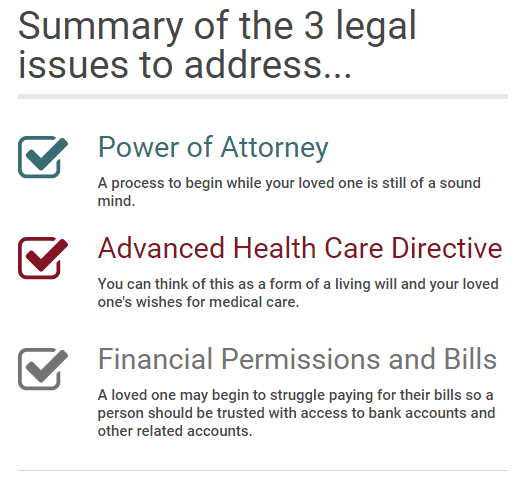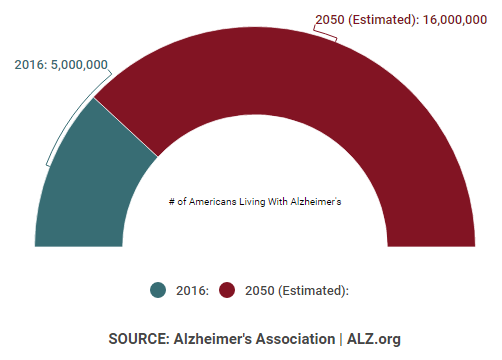We have put together one of the most comprehensive guides on what you should know when a loved one is diagnosed with Alzheimer’s disease. You can read through the entire guide or click to the section that is most relevant to you. If you have more questions or need an assisted living advisor, please contact Senior Living Specialists today.
Table of Contents
Section 1: Introduction
- Our Founder’s Personal Story
- What to Expect after a Loved One is Diagnosed with Alzheimer’s
Section 2: What to Do Next
- Explaining Alzheimer’s Disease to Family and Friends
- Legal Considerations for the Future
Section 3: Living Well Despite the Disease
- Creating a Safe Environment for a Loved One with Alzheimer’s
- Tips for Managing Difficult Behaviors at Home
- Life Enrichment Activities for People with Alzheimer’s
Section 4: When the Senior Needs More Help
- How Senior Living Advisors Help Families Make an Informed Choice
- In-Home Care, Adult Day Programs and Senior Living
Section 5: Making a Move
- Choosing a Memory Care Community
- Moving a Loved One Who Has Memory loss
Section 1: An Introduction
Our Founder’s Personal Story
Alzheimer’s is a diagnosis that impacts the entire family. It is a situation Paul Markowitz, the Founder of Senior Living Specialists, knows all too well. At just 59 years of age, his mother was diagnosed with the disease.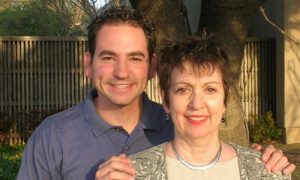
Paul learned the hard way that as Alzheimer’s disease progresses, it leaves spouses and adult children struggling to keep a loved one safe at home. From managing difficult behaviors caused by the illness to providing constant supervision so their loved one stays safe, families often turn to home care or senior living providers for support.
Knowing what type of care is best at each stage of the disease and finding a senior care provider you feel confident in can also be a challenge. After Paul and his family had a difficult search to find a quality memory care program in the Dallas – Fort Worth metroplex, he knew there must be a better way to connect families with the senior care resources they need.
The Markowitz family’s struggle is what led Paul to start Senior Living Specialists in 2009. Since that time, Paul and his locally-based team of senior care advisors have assisted over 2,000 families throughout north Texas find care. This guide is based on Paul and his team’s hands-on experience.
After a Loved One is Diagnosed with Alzheimer’s
A diagnosis of Alzheimer’s can be life changing for a senior and those close to them. Because the disease slowly robs people of their ability to care for themselves, they become increasingly dependent on others for assistance with daily tasks.
If your loved one has been diagnosed with Alzheimer’s, know that you are not alone. One in nine seniors has Alzheimer’s or a related form of dementia. An estimated 5.4 million Americans are thought to be living with the disease. And, according to research from the Alzheimer’s Foundation of America, between one and four members of a family typically act as caregivers for each person with the disease.
As a family member, there are proactive steps you can take today that will allow your loved one to maintain their independence for as long as possible. And ways you can begin to prepare for the day when they need more assistance.
An Overview of Factors for Families to Consider
Learn More about the Disease
When it comes to coping with a complex diagnosis like dementia, knowledge is power. Educating yourself and other family members who will be involved in your loved one’s care should be a top priority.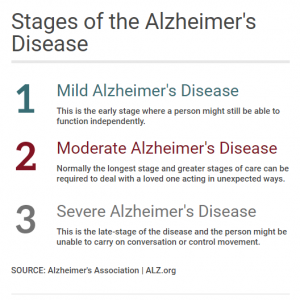
Make sure you all understand the stages of Alzheimer’s so you have a good idea of what to expect as your loved one’s symptoms change and progress. A suggested starting point is an overview of the disease process created by the Alzheimer’s Association.
Dealing with Difficult Emotions
After this diagnosis, you and your loved ones may be experiencing a roller coaster of emotions ranging from shock to fear, sadness, and denial. These are all normal reactions.
Finding healthy ways to deal with your feelings, such as by journaling or joining a support group, can help. Keep in mind that emotional support will also be important for the loved one living with the disease, as well as for the family caregivers.
Decide Who You Want to Tell
After you and your immediate family have time to adjust to this diagnosis, you may want to begin telling family and friends the news. It can be difficult to do. Explaining Alzheimer’s disease to children may seem especially challenging, but there are many resources to help grandkids and teens understand dementia. We’ll share some suggestions in the next section of this guide.
Planning for Today and the Future
From creating a safe environment for a person with memory loss to discussing wishes for future care, it’s important to have a plan. This includes preparing for the day when your family can no longer juggle all of the responsibilities of a loved one’s care on your own. We’ll share tips you might need if you are hiring an in-home caregiver or taking advantage of a local adult day program.
If remaining at home isn’t a safe option, a move to a memory care program in an assisted living community or to a long-term care center might be necessary. Both offer support with personal care and day-to-day tasks, such as dressing, bathing, and medication monitoring.
We’ll talk about senior care options that might help at each stage of Alzheimer’s throughout this guide.
Build a Care Network
As you begin to make decisions about treatment, medications, and living arrangements, you will need a support team. It could include family members, trusted friends, physicians, clergy, and even nearby neighbors. Joining a local or online Alzheimer’s caregiver support group is also something to consider.
Find out if your loved one’s primary care physician will continue to follow and manage their care going forward or if you will need to find a doctor who has experience treating Alzheimer’s. As the disease progresses, your care network might need to expand to include nurses, home care aides, social workers and other specialists.
Section 2: What to Do Next
Explaining the diagnosis to your senior loved one’s inner circle, as well as creating a care plan and drafting legal documents are important next steps.
Explaining Alzheimer’s Disease to Loved Ones
When a loved one’s disease progresses to a stage where they no longer recognize family members, it causes heartache for everyone involved. Despite understanding that it is an inevitable part of this debilitating illness, the reality is hard to accept.
For children, Alzheimer’s is especially difficult to understand. Their senior loved one may remember the child and call them by name one day, then be unable to recognize them the next.
Talking about an Alzheimer’s Diagnosis
With your senior loved one’s permission, you will soon need to share the diagnosis with close friends and family. Because three out of five people with Alzheimer’s disease will wander at some point in their illness, making friends and neighbors aware of the situation can help keep them safe.
It might be worthwhile to obtain educational materials from the Alzheimer’s Association or print them from their online Resource Center. These materials can be useful when family and friends are learning about the disease and how it typically progresses.
Have an open and honest discussion about the disease. It might also help to encourage friends and family to share their fears and feelings, and maybe even join an online caregiver support group. Urge them to stay involved in your loved one’s life any way they can.
Understand that some people you thought you could count on may not be able to handle this difficult disease. It isn’t uncommon for a few loved ones to distance themselves physically and emotionally.
How to Explain Alzheimer’s Disease to Children?
First, we recommend you explain to children in the family that their senior loved one has an illness that makes it hard for them to remember things. Be sure to emphasize that neither the senior nor the child has done anything wrong. These changes are caused by the illness.
It is also important to explain to children that Alzheimer’s isn’t contagious. People can’t “catch it” like a cold or the flu.
What’s Happening to Grandpa? is a book by Maria Shriver. It might be helpful in explaining Alzheimer’s to children in the family. It was written by Shriver when her father was diagnosed with Alzheimer’s and she was struggling to find the words to talk about it with her children.
Finally, the Alzheimer’s Association has two different video series featuring kids talking about the disease from their own perspective. Kids Look at Alzheimer’s and Teens Look at Alzheimer’s are both good resources to help you when you sit down with your family.
Legal Considerations for the Future
Closely related to the topic of discussing the diagnosis with friends and loved ones is working together to create a plan for the future. A plan that honors your senior loved one’s wishes for care.
Three issues are typically an important part of this process: a power of attorney, advanced directives and permission to pay bills and manage finances.
Power of Attorney
Having power of attorney for a loved one means that they have granted you the authority to make legal, business, financial and/or medical decisions on their behalf should they be unable to.
In order to ensure that your Power of Attorney documents are legally binding, your loved one must be of sound mind before signing the papers.
Advanced Health Care Directive
An advanced health care directive, sometimes referred to as a “living will,” is another written document designed to express a person’s wishes for medical care and life-saving procedures. Living wills typically detail very specific end-of-life preferences.
Financial Permissions and Paying Bills
Adults with Alzheimer’s often struggle to safely manage their finances even in the earliest stages of the disease. Family members often need to step in and help their senior loved one pay bills and monitor their finances. Doing so will require someone in the family to have access to the senior’s financial accounts.
Having a trusted loved one added to bank accounts will allow one of you to monitor and control the senior’s financial well-being. If any of their routine bills can be paid online, automatic bill pay can save time.
Section 3: Living Well Despite the Disease
According to the “Best Friends” approach to Alzheimer’s caregiving created by dementia experts Virginia Bell, M.S.W. and David Troxel, M.P.H., environment can greatly impact the quality of life for a person with Alzheimer’s disease.
Creating a loving, positive atmosphere is key to helping those with memory loss feel safe and secure.
Creating a Positive Environment
A peaceful, structured environment can help adults with Alzheimer’s maintain their best quality of life.
Aromatherapy
The power of the senses, especially smell, can help lift and calm the spirit. It is often used in cancer treatment centers, child care centers and in hospice programs. Research has also shown it can help soothe agitation in people with Alzheimer’s. Knowing which scents to use is important. For example, lavender is known to help calm anxiety and promote better sleep. Both rosemary and lemon can help boost mood. Grapefruit can help stimulate appetite, which is often an issue in seniors with Alzheimer’s.
Lighting
Alzheimer’s often disrupts the body’s sleep – wake cycle. It leads to a shift in circadian rhythms causing days and nights to be confused. Consider installing dimmer switches in the rooms your loved one spends the most time in. Gradually dim the lights as day turns in to night. Make sure the room where your senior family member sleeps is free from any lighting sources, such as a digital alarm clock, that might hamper sleep.
Declutter Pathways
People with Alzheimer’s disease are at higher risk for falls because they often develop vision problems, especially a loss of depth perception. It causes them to shuffle their feet when they walk. This puts them at greater risk for a trip and fall accident. So be sure to keep pathways clear and remove any fall hazards, such as throw rugs or torn carpeting.
Managing Difficult Alzheimer’s Behaviors at Home
Sticking with a structured daily routine is one of the best ways to help prevent stress and avoid difficult behaviors associated with Alzheimer’s, such as aggression or agitation. Wandering is another common concern.
A few strategies you might find helpful in managing tough behaviors include:
- Scheduling appointments and errands for the early part of the day. This helps keep the senior from getting overly tired in the evening when behavioral issues are more common.
- Using food choices to help minimize agitation. It often means substituting water or tea for caffeinated beverages.
- Learning how to redirect troubling behaviors with another activity. For example, if your loved one insists on “going home” because they no longer recognize their surroundings, ask them to help you with an activity such as folding clothes or drying dishes.
- Keep background noise and activity to a minimum. Seniors with Alzheimer’s often have troubling processing too much information at once. It may cause them to become agitated and aggressive.
- Store items that might trigger wandering out of sight and away from exterior doors. This includes coats, boots, purses and car keys. While it might not be as convenient, it can help prevent an adult with Alzheimer’s from trying to leave the home.
- One strategy memory care programs often employ is to camouflage the interior side of exterior doors. It might be by painting it the same color as the walls or by hanging a curtain over the door.
Life Enrichment for People with Alzheimer’s
In a safe and structured environment, seniors with dementia may be able to continue doing many of the things they enjoy despite their illness. Here are a few suggestions to keep your loved one active and engaged:
Exercise
Staying physically active is good for people who have dementia. Exercise not only promotes better health, it also reduces stress and helps the senior sleep better. Taking a daily walk, practicing Chair Yoga and even dancing along to favorite old music are all good activities to engage in.
Music therapy
The healing harmony of music is well documented. Many times a senior who has lost their ability to speak is still able to sing songs from their youth. Music helps reduce stress and boost the spirit.
Arts and Crafts
Creative projects are known to provide therapeutic benefits. They can also be great intergenerational activities for seniors to do with their grandchildren. If you aren’t particularly crafty yourself, you can find project kits for all ages at your local craft stores.
Reminiscence
Another great way to spend time with a senior who has Alzheimer’s is to watch old family videos and to look through photos. Try to stick with those from whatever time frame your senior seems to recognize most.
Baking
Aromatherapy doesn’t have to be from essential oils or candle. For many seniors with Alzheimer’s, familiar smells from the kitchen can also trigger happy memories. Pull out a few family recipes for baked goods known to have the best aromas, such as chocolate chip cookies, pumpkin pie, or banana bread. Baking can also be a great intergenerational activity. Not only does the act of mixing help relieve stress and anxiety, it can bring back memories of happy times.
Counting and Sorting
The repetitive nature of sorting and counting can help reduce agitation. It can be as simple as sorting playing cards or counting poker chips. Just be careful not to use anything that might present a choking hazard.
Gardening
Another activity people with dementia often enjoy is gardening. It can stimulate and engage all of the senses. While gardening in the great outdoors has many benefits, it isn’t always a safe option for people with memory loss who are more likely to wander. In those cases, container gardening indoors can be a solution. Your loved one might like to create an herb garden or a fairy garden.
Now let’s move on to talk about what you can do when a loved one with Alzheimer’s needs more care than you can provide on your own.
Section 4: When a Senior Needs More Care
We know it can be tough for adult children to accept that a parent needs more care than they can provide. Whether it is the support of an in-home caregiver, enrolling in an adult day program or moving to a senior living community, it is important to take time to explore your options.
We also understand that with so many choices, trying to figure out which type of senior care is best and how to make an informed choice can leave you feeling overwhelmed.
This is where a senior living advisor can help.
The Role of a Senior Care Advisor
An experienced care advisor, like the team members at Senior Living Specialists, can help older adults and their families explore senior care options. They will answer questions about each type of care and help you decide which one may be the best solution for your loved one.
Another advantage families have when they work with a senior living advisor is access to the advisor’s insider knowledge of the senior care market. We know which assisted living communities in the Dallas – Fort Worth metroplex earn high marks from residents, families and state surveyors and – just as important – which ones don’t.
How to Interview Potential Senior Care Advisors
Selecting a Senior Care Advisor to work with your family often comes down to knowing what questions to ask. Here are a few suggestions you can use to make an informed choice:
- What is your background, experience and training?
- How many families have you helped find a senior care solution?
- Do you help with all types of senior care? Or just housing?
- How long does it typically take to find the right type of care and the right provider?
- Do you set up the appointments for us?
- How many home care agencies or senior living communities do you recommend families visit?
- Have you been to all of the senior living communities you suggest families consider?
- Do you know of any special financing for senior care?
- How much do your services cost and what does that price include?
- Do we have to sign a contract with you?
Not only will an experienced Senior Care Advisor help you find a care solution, he or she will also help educate you on the different types of care that are available.
Exploring Care Options for a Senior with Dementia
This overview will help you learn more about the different types of care that may be beneficial for a senior with some form of dementia: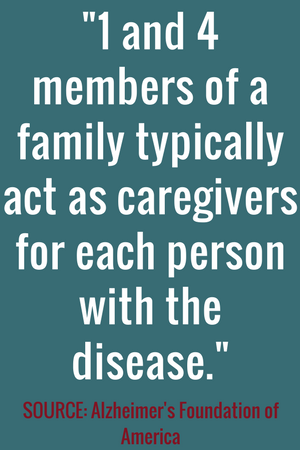
In-Home Care
Non-medical home care services allow seniors to maintain their independence at home longer. For a senior with dementia, it can help them stay safe when you can’t be there. Home care staff can come to the older adult’s home to provide assistance with meals, housekeeping, and laundry. They can also offer support with personal care needs such as grooming, bathing and dressing.
Adult Day Centers
One underutilized option that can help is an Adult Day center. These often serve clients who are not safe alone at home. While programs and services vary, most adult day centers offer meals, programs and activities, a place for clients to rest, and very basic health care support. Many programs will also offer transportation services to and from the center.
Memory Care
Specialty Alzheimer’s care is often referred to as Memory Care. This is typically found within an assisted living community. Caregivers receive additional training to aide them in understanding how to support the unique needs of someone living with memory loss. These communities offer life enrichment programs designed to work around the common physical and cognitive impairments the disease creates. The goal is to help adults with Alzheimer’s feel successful each day.
Long-Term Care
A long-term care center, also referred to as a nursing home, is sometimes required when a senior with Alzheimer’s has health concerns that require skilled care. It might be for assistance with diabetic care or for support with respiratory conditions that can’t be safely managed in an assisted living setting.
Section 5: Making a Move
For many families, the day will come when a loved one with Alzheimer’s will need to move to a Memory Care assisted living community. It may be the safest solution, and the one that allows them to live their best quality of life.
Finding a Memory Care Program
There are a variety of factors that should be taken in to consideration when choosing a Memory Care program for a loved one:
Caregiver Ratio
This is important because it is often an indicator of how good the care is at a community. So be sure to ask how many staff members are available during the day to care for residents. Also ask what the number is during the overnight hours.
Observe Interactions
Staffing levels are important, but they don’t tell the whole story. Spend time observing the interaction between staff members, residents and their families in the community. Do the relationships seem cordial and friendly? Body language can tell a lot!
Life Enrichment Activities
A quality Memory Care program will offer a wide variety of activities that occur throughout the day and evening. This includes weekends. Ask to observe a few activities and to have a copy of several months of activity calendars.
Safe and Secure
A memory care program needs to make every possible effort to keep its residents safe. But it should never make residents feel as if they are trapped. Security systems should be subtle, yet still able to prevent residents from wandering to unsafe locations.
Conveniences
Because a change of environment can be difficult for a person with Alzheimer’s, find out what conveniences are offered on-site. Is there a physician who cares for residents? What about a physical therapist who visits? And a podiatrist? A hair salon is also helpful.
Moving a Loved One Who has Memory Loss
If your family has decided that it is time for a senior loved one to transition to a Memory Care program in an assisted living, there are a few steps you can take to help them make a smooth transition into their new surroundings.
Avoid Transfer Trauma
The term transfer trauma is used to describe the anxiety and stress a senior experiences when they move to a new environment. Transfer trauma is more common in people who are in the earlier stages of Alzheimer’s. It is usually temporary. Once the senior is settled in to their new home, they will typically begin to relax and feel more comfortable.
Experts say encouraging new residents in a Memory Care program to adopt a routine similar to what they had at home may be the key. This is why you will often see residents in a Memory Care program making their own bed and helping with chores such as folding clothes.
Comforts of Home
It also helps to create a living environment for your loved one that closely resembles their current home. Hang familiar family photos on the walls, bring their favorite living room chair, and display some of their treasures. Use their favorite comforter on the bed.
Create a Reminiscence Board
A reminiscence board helps caregivers at your loved one’s new community get to know them faster. And it also helps your family member continue to feel connected to their past. Include photos of loved ones with their name and relationship marked underneath it. Also pin up photos from the senior’s wedding, family vacations and other important milestones.
While it is never easy to move someone you love, knowing you’ve made an informed choice and that your family member is in good hands will help. It’s important for you to try to let go of the guilt you are likely feeling and focus on helping your loved one continue to live their best life in their new home.
You are Not Alone
We know coping with a loved one’s diagnosis of Alzheimer’s disease can be difficult. But you are not alone. The experienced senior care advisors from Senior Living Specialists are here to help.
We provide dementia care referral services to the following areas in and around the DFW metroplex: Allen, Arlington, Bedford, Carrollton, Colleyville, The Colony, Coppell, Dallas, Denton, Desoto, Duncanville, Euless, Flower Mound, Fort Worth, Frisco, Garland, Grand Prairie, Grapevine, Hurst, Irving, Keller, McKinney, Mesquite, Murphy, North Richland Hills, Parker, Plano, Prosper, Richardson, Rockwall, Rowlett, Sachse, Southlake, Wylie, and all other surrounding areas.
Because we are compensated by a referral fee when a senior moves in to a community, our services are always free for seniors and their families.
Please call us today at 214-929-5055 to learn more!
